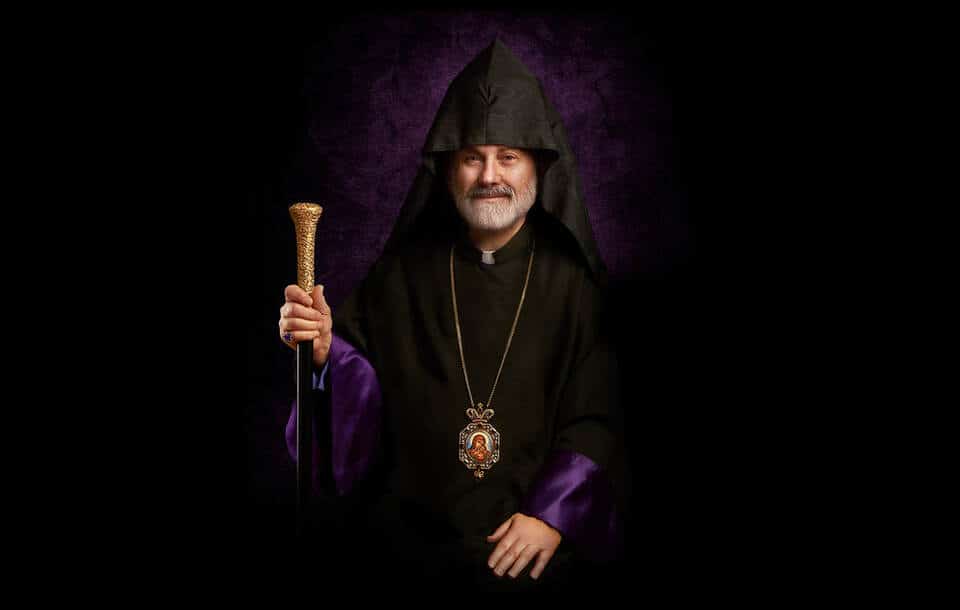Today on the fifth Sunday of Advent the Gospel reading is from St. Luke 18:9-14, where we are told about the true essence of Prayer. Our Lord Jesus Christ tells the parable of a Pharisee and tax collector. The former offers his prayer arrogantly, boasting how he is grateful to God that he is not like other people: thieves, rogues, adulterers, or even the praying tax collector. Rather, he announces that he fasts twice a week, and gives a tenth of all his income. Meanwhile, the tax collector, lowering himself down to the very earth, prays very humbly. He would not even look up to heaven, but was beating his breast and saying, “God, be merciful to me, a sinner!”
The Divine verdict was announced in favor of the tax collector, that “he went back to his home more justified rather than the Pharisee; for all who exalt themselves will be humbled, but all who humble themselves will be exalted.”
Parables in general follow a logical process. The listener somehow can assume from the beginning the course of the events and anticipate the final conclusion. To be more exact, chapter 18 starts with the parable of a judge and a poor widow, followed by the parable of Pharisee and the tax collector. A casual listener could very easily conclude that in both situations the reasonable conclusion would be in favor of the judge and the Pharisee. Nevertheless, our Lord’s parables provide us with a totally different judgment led by Divine dimension.
In the Armenian Calendar, we read the passage from Luke chapter 18 twice during the year: first, we read it during Great Lent in preparation for Easter, and then we read it during Advent in preparation for Armenian Christmas. Since we have already discussed the parable of the Judge and the poor widow during Great Lent, let us enjoy the beauty of Divine wisdom derived from our reading now in Advent.
The beginning of the prayer by the Pharisee is indeed an ideal pattern for all prayers. First and foremost, we must acknowledge our blessings and thank God for everything which we enjoy in our lives. If the Pharisee had ended his prayer at that point, it would have been commendable. However, as he continued, he began to boast, and revealed the reflection of a soul suffering from a superiority complex. The Psalmist very clearly states that “no one living is righteous before God” (Ps 143:2). Nevertheless, he assures us that “a broken heart and contrite heart God does not despise” (Ps 51:17).
And this brings us to understand a fundamental truth that God, who is not bound by our understanding of time, spoke in the Old Testament through the Patriarchs and the Prophets, and was now speaking as God and man in time the same Truth. Therefore, as rational beings and servants of the Good Lord, the more we look for lilies of virtues in the valleys of meekness, the more they lead us to witness and enjoy the heights of true and eternal bounties.
It is the confession of the tax collector as a sinner that made him worthy to be justified. It was the confession of Peter, the fisherman: “Go away from me, Lord, for I am sinful man”, that led him to be an Apostle and to “catch” people (Lk 5:8-10). It was the confession of St Paul that he is chief of all sinners (1 Tim 1:15), that empowered him to say, “I have fought the good fight, I have finished the race, I have kept the faith. From now on there is reserved for me the crown of righteousness…” (2 Tim 4:7). It is the confession of Catholicos Nerses: “me, a manifold sinner”, at the end of each stanza of the prayer “I confess in Faith”, that entitled him to be known as Shnorhali Hayrabed, the Graceful Catholicos.
And lo! Here we are, not too far from celebrating the Nativity of our Lord Jesus Christ, which is unparalleled monumental action of humility inviting us to discover our authentic identity as the children of the Heavenly Father. Are we ready to use this divine stairway of humility provided to us by the grace of God? Definitely it will elevate us to enjoy the glory of the One who concurrently dwells in the highest heaven and also in our hearts, and will encourage us to praise Him forever. Amen.


Your messages are magnificent! Thank you